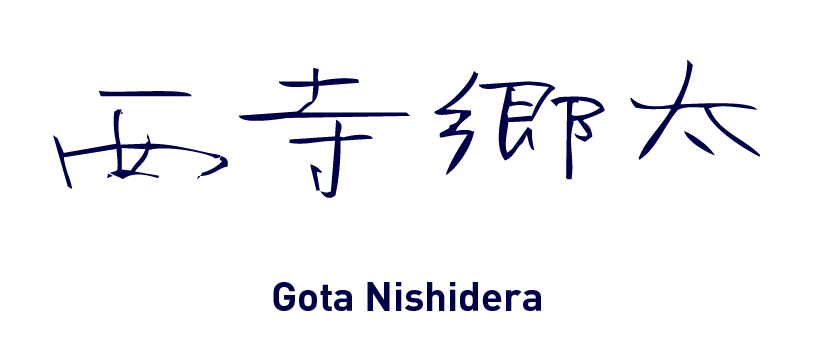What does it mean to write? Writing is a very simple task one can do with only a pen and paper. And yet, the possibilities are endless. This popular series from last year comes back with a new lineup of interviewees. To everyone who is involved in writing on a daily basis, what does it mean to write?
What does it mean to write?


I continue to research no matter how long it takes, and write.
That’s where I find something new.
While being a musician himself for the band Nona Reeves, Gota Nishidera produces various songs for artists. At the same time, he’s a storyteller for musicians from the 80s, including Michael Jackson and Prince, and talks about their songs and episodes in various places. When storytelling, a notebook where he’s packed information in, yet is easy to read, is crucial. We asked Nishidera on what it means to handwrite.
ProfileGota Nishidera
Born in 1973, Tokyo. Brought up in Kyoto.
Formed the band Nona Reeves during university and is the vocalist. He also works as a songwriter and producer for various musicians. Is also a specialist in 80s music and has worked on official liner notes for Michael Jackson and Prince, and many others.
Publications include: New “Michael Jackson” School Books (Shincho Bunko), Michael Jackson (Kodansha Gendai Shinsho), We are the curse (NHK Publishing Shinsho), Prince Atheism (Shincho Shinsho), Janet Jackson and 80s Divas (Seikaisha Shinsho) and more. Also has a publication on his neat notetaking “Note-taking to convey your thoughts” (Small Publishing). A new book from this series “Beginners Note-taking Method” (Small Publishing) is planned to come out on May 28, with tips on taking notes to learn, convey thoughts and to come up with ideas.




















